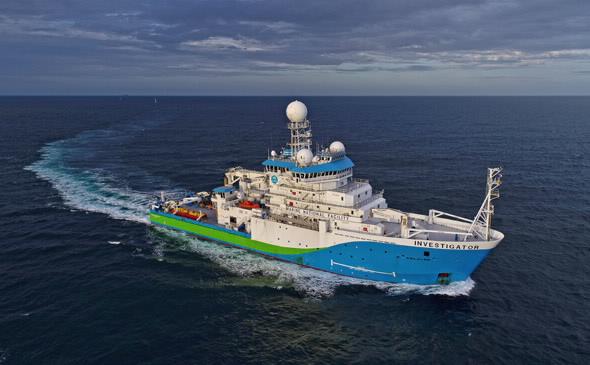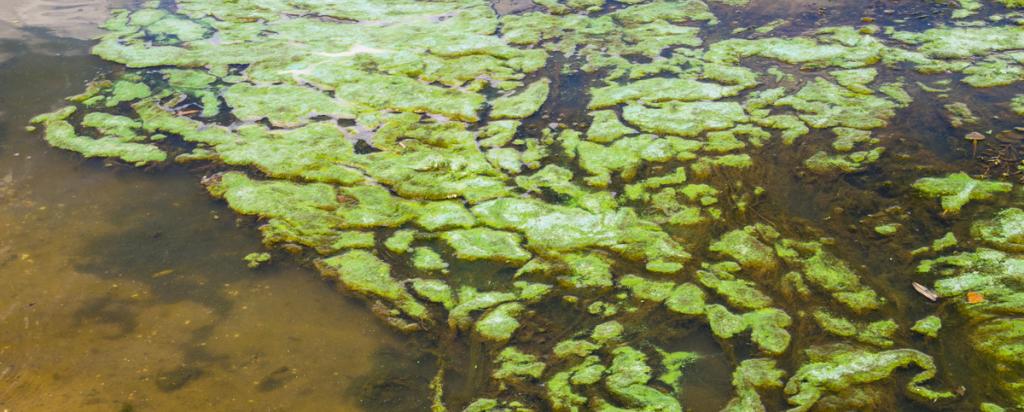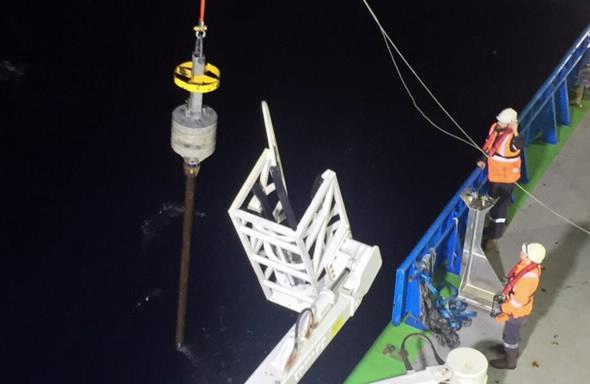

Published on the 18th May 2018 by ANSTO Staff
 |
| Credit: Owen Foley |
Environmental researcher Dr Craig Woodward is aboard the CSIRO research vessel RV Investigator on a scientific voyage from Brisbane to Hobart.
Woodward will be collecting sediment samples off the east coast of Tasmania to look at the long term record of algal blooms.
|
The sampling is being done as part of ANSTO’s contribution to an ARC Discovery project in collaboration with the University of Tasmania, which also involves Head of Environmental Research, Prof Henk Heijnis.
Heijnis and Woodward will be using nuclear techniques and other methods to reconstruct a thousand year history of harmful algal blooms along the eastern section of the Tasmanian coastline.
“Unprecedented toxic algal blooms occurred off the east coast of Tasmania in 2012, 2015, 2016 and 2017, which led to a global shellfish product recall worth 23 million AUD,” said Woodward.
“The main aim of the research is to understand the environmental conditions that lead to harmful algal blooms so we may be able to forecast or perhaps even prevent their occurrence in the future.”
Microfossils and ancient DNA can be used to detect past algal blooms in the sediment record.
“The use of ancient DNA is an exciting part of the project as this is an emerging technology. Traditionally we have used the morphology or shape of algal fossils to identify the species composition in the past. Now we can use ancient DNA to identify species that may have been missed before, for example, detecting species that don't usually preserve as fossils,” said Woodward.
ANSTO will provide age control for the cores using lead 210 and radiocarbon dating.
TheITRAX XRF core scanner at ANSTO will also be used to examine changes in sediment geochemistry through time.
The coring of sediment for ANSTO and the University of Tasmania is the main focus of the voyage, but there are also bird observations by Birdlife Australia, CSIRO and the Royal Australian Navy is testing a mobile oceanographic modelling system (Remote-Roam).
The RV Investigator is expected to reach Hobart on 21 May.
There are approximately 55 scientists, support staff, technicians, engineers, and teachers, participating in the Educator on Board program.
This research, education and training is supported by grants of sea time on Investigator from the Marine National Facility.
